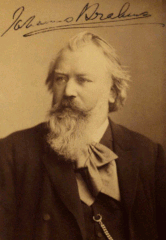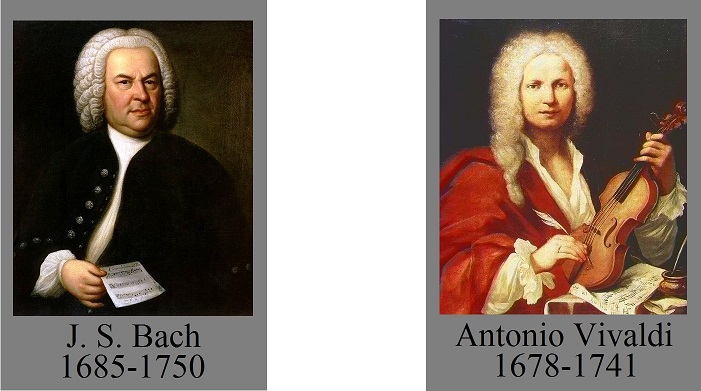The Craft of Composition

“Without craftsmanship, inspiration is a mere reed shaken in the wind.”
–Johannes Brahms
A young acquaintance of mine informed me that he had signed up for a course in composition. After congratulating him, I inquired what previous music courses he had taken, and was told that this was his first music course. Further discussion revealed that he also had never played an instrument (or even studied voice) nor studied music theory. Since this was a Facebook conversation, he could not see me shaking my head in disbelief.
I thought about the intensive training that made possible the music of a great composer such as Johann Sebastian Bach. In Bach’s day, the creation of music was regarded as a craft, to be learned from the masters of the art through apprenticeship. Composing was not so differentiated from performing in those times: A performer wrote new music in order to fill gaps when no other music was available for the occasion, as a practical skill that followed naturally from one’s improvisatory ability. Born into a family of musicians, Bach had received comprehensive early training in the violin, the clavichord, the organ, and music theory. The emphasis was on learning the music of the masters.
At age 10, following the deaths of both of his parents, Johann Sebastian Bach moved in with his oldest brother, Johann Christoph Bach, and began rigorous study of the finest music that existed in his time, often by hand-copying the manuscripts of his greatest predecessors, including (at a later point) Antonio Vivaldi in particular. Vivaldi was one of the most famous composers of that day and provided clear models for Bach’s compositions. Of course, Bach’s works show the unmistakable signature of his personal unique genius, but he and the other composers of his day did not pursue originality for its own sake and had no compunctions about borrowing the techniques that represented proven excellence in their art.

Originality became a preoccupation of composers only later, in the nineteenth century, as music came to be regarded more as a vehicle for personal expression. As I observed in a previous post to this blog, “Romanticism is centered in the unshackled expression of human values and aspirations.” The new Romantic music was no longer bound by the formulas and strict rules of classicism, but was guided by the imagination, leading to more adventurous harmonic vocabulary, bold new melodic shapes, new genres like the tone poem and Wagnerian music-drama.
But musical expression is meaningful only if it is conveyed to the listener, and that requires a language with a comprehensible syntax. If a composer’s “expression” cannot be grasped by a listener, then it becomes an exercise in solipsism and arguably no longer constitutes musical expression at all. The great Romantic composers continued to receive a thorough grounding in the essentials of musical language — counterpoint, harmony, musical form, and so on — even as they extended and enriched that language, as demanded by the Muse. Later, in the early twentieth century, the earliest avant-garde composers were still well schooled in the art of composition and the music of the past, so even if they chose to abandon most or all of it, they understood what they were giving up.
But now we have arrived at a juncture, at least in some quarters, where actually knowing something about music is considered unnecessary to the young composer, perhaps even a hindrance since it might interfere with his or her “originality.” The Muse has become entirely subjective and internal. Merely follow that internal voice, and instant creative greatness is guaranteed.
I was largely self-taught in composition. Only many years after establishing myself as a serious composer did I earn an advanced degree in the subject, as a kind of afterthought. But I brought to my early composing efforts a wealth of understanding of the great music of our culture. Trained as a concert pianist, I was intimately familiar with the piano repertoire. Also an experienced violinist, I was exposed to a wide variety of orchestral and chamber music. Moreover, I had taken a keen interest in music theory even at an early age and later had the good fortune to be taught by some very good teachers in that field. I was continually aware of the relationship between my early compositional efforts and the principles followed by past masters, making considered decisions about when I should launch into new directions that departed from convention. My compositional craft developed gradually over about two decades before I began to consider any of its fruits to be worthy of public presentation. Certainly, my music reflects my personal experiences and my inner emotional life, but I believe it is craftsmanship — which is learned over many years of study — that makes that music worthwhile.

